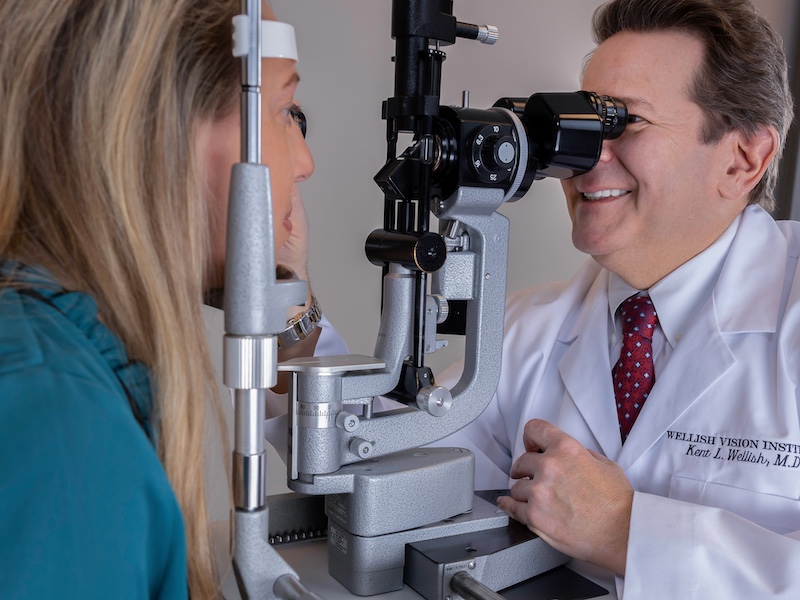
We have been a proud affiliate of American Vision Partners since 2022
Our experienced team is here to help.
Our commitment to patient care has led us to create a practice where our patients receive individualized treatment for LASIK laser vision correction, laser-assisted cataract surgery, advanced dry eye treatment, Glaucoma treatment and much more! Las Vegas ophthalmologist Dr. Wellish and his staff make it a top priority to seek out the most innovative technology and combine it with decades of experience for our patients.

It has been 1 year and 3 months (almost to the day) since I visited Wellish for custom-Lasik correction . . . and I can definitely say it was the best decision of my life! I was seeing 20/15 the next day at my follow up appointment and my general optometrist was laughing 6 months later when I read the 20/10 lines without any issue. Thank you Dr. Wellish and crew for the excellent treatment!
I am an optometrist practicing in Minnesota and had to send a patient to a clinic for an urgent matter when they were out of town. The staff and doctors at the Wellish Vision Institute made the referral process a breeze! They were friendly, helpful and I knew my patient would be in great hands! The optometrist spent time educating our mutual patient on their condition. I would recommend them to anyone looking for quality care with a personal touch!
There’s a reason why Dr Wellish and his staff is rated so high. He is personable and very thorough at what he does. His staff and himself genuinely care for their patients. The reception staff, to the consultation reps, to the pre opt guys, and the doctors themselves, they are superb at what they do. I told Dr Wellish I was moving away, and he gave me a list of places to eat at the new city! Which doctor has time for that? He made time. My eyes are now 20/20, overall the entire experience was incredible. No issues with my sight, only crystal clear vision.
I came to Wellish Vision Institute with some pretty bad eyesight, it’s been exactly a week since I received the corrective eye surgery. I’m seeing 20/20 no glasses or contacts required! More importantly though, the whole experience felt so natural and exciting. Going from being almost legally blind to having perfect vision is a truly life-changing thing. Like most people the thought of laser eye surgery might seem intimidating, it certainly was for me, I went in as a completely blank canvas. I didn’t know what to expect, but everyone there seemed so supportive and friendly, I had no trouble feeling comfortable. Everything was explained in major detail – from two weeks prior to your pre-op appointment to more than a month after your post-op surgery – with plenty of room for questions from me. I felt so prepared that when the actual day came, I wasn’t nervous at all. It honestly felt like a day at the spa! Quick and absolutely painless. I’m so grateful I had the opportunity to have my vision corrected here, and I highly recommend others to do the same! Thanks so much you guys!!
Improve the look and function of your eyelids, brows and skin.